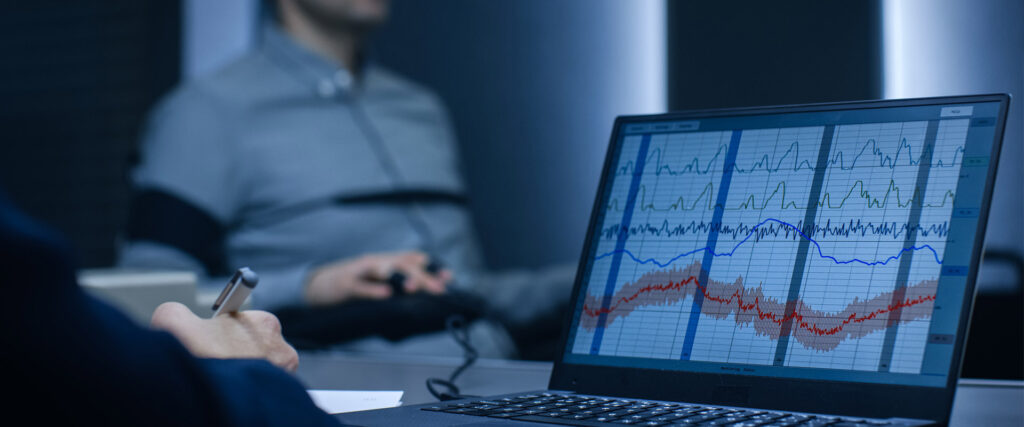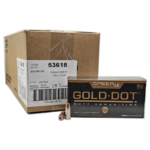Lie detector tests, also known as polygraph tests, have long been used as a tool to determine whether someone is telling the truth. Whether it’s in a personal, professional, or legal context, these tests can be helpful in providing clarity and resolving disputes. In New York City (NYC), lie detector tests are often sought for a variety of reasons, such as investigating cases of infidelity, workplace misconduct, or theft. However, knowing where to take a lie detector test in NYC and understanding the process can be challenging.
This article will provide a complete guide on where to take a lie detector test in NYC, the key factors to consider when choosing a provider, how the test works, and what you should expect during the process.
What Is a Lie Detector Test?
A lie detector test is a procedure that measures physiological responses like heart rate, blood pressure, respiration, and skin conductivity while a person answers a series of questions. The premise is that lying induces stress or anxiety, which manifests as measurable changes in these physiological signals. By monitoring these changes, a polygraph examiner can determine whether the person is being truthful or deceptive.
While lie detector tests are often used in criminal investigations, they can also be applied in personal disputes (such as cases of suspected infidelity) or workplace scenarios (such as theft or fraud investigations). However, it’s important to note that the results of lie detector tests are not typically admissible in court in New York, and their accuracy has been a topic of debate.
Where to Take a Lie Detector Test in NYC
Finding a reputable polygraph service in NYC is crucial if you need to undergo a lie detector test. There are several providers in the city that offer professional polygraph testing for various purposes, including personal, legal, and corporate investigations. Below are some common places where you can take a lie detector test in NYC.
1. Private Polygraph Testing Services
Many companies in NYC specialize in private polygraph testing. These services cater to individuals, businesses, and legal professionals who require lie detection services for non-criminal matters. Private polygraph companies often provide services for:
- Infidelity or relationship issues
- Family disputes (such as inheritance or trust issues)
- Workplace investigations (theft, misconduct, fraud)
- Personal theft cases
These companies usually have certified and experienced polygraph examiners who conduct the test in a controlled environment. It’s essential to choose a service that has a strong reputation, certified examiners, and transparent pricing. Many of these providers offer confidentiality agreements to ensure the privacy of the person taking the test.
2. Law Enforcement Agencies
In certain cases, law enforcement agencies in NYC may administer lie detector tests as part of their investigative process. These tests are typically reserved for criminal investigations, such as homicide cases, serious theft, or cases involving fraud. If you are a suspect, witness, or involved in a legal matter, the police or investigators may ask you to voluntarily undergo a polygraph test.
Keep in mind that while law enforcement agencies may use lie detector tests as part of their investigations, the results are generally not admissible as evidence in court. The tests are used as an investigative tool to guide officers in their inquiries.
3. Corporate and Workplace Investigations
If your employer suspects misconduct, fraud, or theft within the company, they may request a lie detector test as part of their internal investigation. While federal laws like the Employee Polygraph Protection Act (EPPA) prohibit most employers from requiring polygraph tests as a condition of employment, there are exceptions. For example, businesses involved in security services, pharmaceutical manufacturing, and other sensitive sectors may be permitted to request polygraph testing for certain employees.
In such cases, companies typically hire licensed polygraph examiners to conduct the test. It’s important to note that employees must provide consent to undergo the test, and they have the right to refuse without facing adverse consequences in most situations.
4. Legal and Attorney-Referred Polygraph Tests
In some legal disputes or negotiations, attorneys may recommend a lie detector test to resolve specific issues or provide clarity. These tests are often used in civil disputes, divorce cases, or cases involving allegations of misconduct. The results of the test can provide both parties with a clearer understanding of the situation, helping to resolve the matter more quickly.
While polygraph results are not admissible in court, they can still serve as valuable information for negotiation or settlement purposes. Attorneys typically refer clients to trusted polygraph examiners who have experience conducting tests in legal contexts.
5. Mobile Polygraph Services
Some lie detector test services in NYC offer mobile polygraph testing, where a certified examiner can travel to a client’s location to conduct the test. This option provides added convenience and privacy, especially for individuals or businesses that prefer not to visit a testing center.
Mobile polygraph services are particularly useful for workplace investigations or personal matters where discretion is important. The examiner brings portable equipment to the client’s location and follows the same protocols as they would in a traditional testing facility.
Factors to Consider When Choosing a Polygraph Provider
Choosing the right provider for your lie detector test in NYC is critical to ensuring that the test is conducted accurately, ethically, and professionally. Here are key factors to consider when selecting a polygraph service:
1. Certification and Credentials of the Examiner
The accuracy and reliability of a lie detector test depend heavily on the expertise of the polygraph examiner. It’s essential to choose a provider with certified and licensed examiners. In the United States, reputable examiners are often certified by the American Polygraph Association (APA) or other recognized polygraph institutions. Be sure to inquire about the examiner’s credentials, training, and experience in conducting polygraph tests.
2. Confidentiality and Privacy
Polygraph testing often involves sensitive matters, whether related to personal relationships, business investigations, or legal disputes. It’s important to choose a polygraph service that guarantees confidentiality. Reputable providers will offer agreements to ensure that your personal information and the results of the test remain private and secure.
3. Test Accuracy and Methodology
Ask the provider about their testing methodology and the steps they take to ensure accurate results. This includes understanding how the questions are formulated, the length of the test, and how results are interpreted. The polygraph examiner should follow standardized protocols for conducting the test and ensure that all questions are clear and specific to avoid misinterpretation.
4. Cost of the Test
Polygraph testing costs can vary depending on the provider and the complexity of the test. In NYC, prices for lie detector tests generally range from $300 to $1,000, depending on the provider and the nature of the investigation. Be sure to request a detailed breakdown of the costs upfront, and verify whether the fee includes the pre-test interview, the polygraph examination, and post-test analysis.
5. Availability and Location
Consider the convenience and location of the testing center. Some providers offer flexible scheduling options, including evening and weekend appointments. If privacy is a priority, look for providers that offer mobile polygraph services, allowing you to take the test in a location of your choosing.
What to Expect During a Lie Detector Test
Taking a lie detector test can be a nerve-wracking experience, especially if it’s your first time. Here’s what you can expect during the process:
Pre-Test Interview
Before the actual polygraph test begins, the examiner will conduct a pre-test interview to gather background information and explain how the test works. During this stage, the examiner will review the questions that will be asked and ensure you understand them.
The Polygraph Examination
During the test, you will be connected to the polygraph machine via sensors that measure physiological responses such as heart rate, breathing, and skin conductivity. The examiner will ask a series of neutral, relevant, and control questions, and the machine will record your body’s reactions as you answer.
Post-Test Analysis
After the test, the examiner will analyze the data and compare your physiological responses to determine whether you were truthful or deceptive. In most cases, you will receive the results shortly after the test, along with a report outlining the findings.
Conclusion
If you’re looking to take a lie detector test in NYC, there are various options available, ranging from private polygraph services to corporate and legal testing providers. It’s essential to choose a reputable service with certified examiners to ensure the accuracy and reliability of the test results. By considering factors such as certification, confidentiality, and test accuracy, you can make an informed decision about where to take your polygraph test and what to expect during the process.
Read more: Kennedy Funding Ripoff Report: Uncovering the Truth Behind the Allegations



